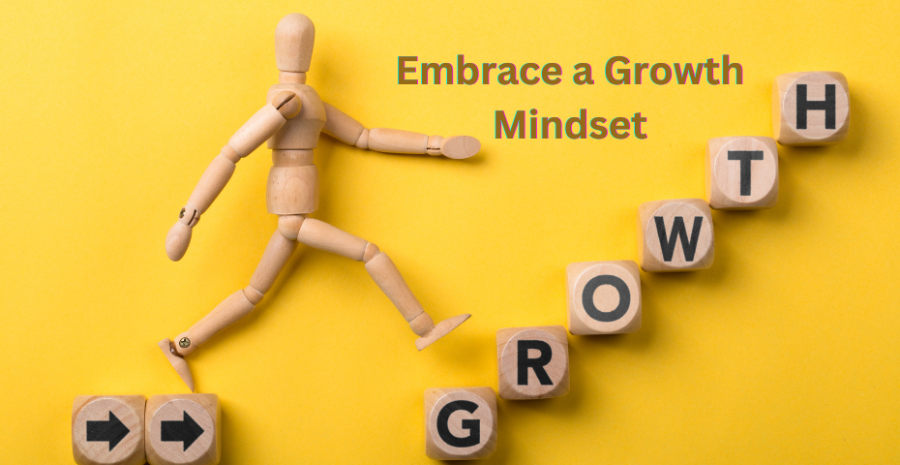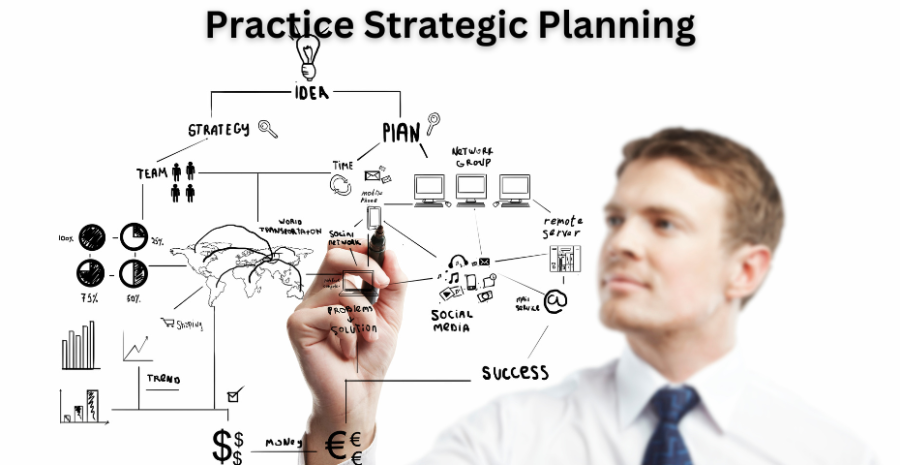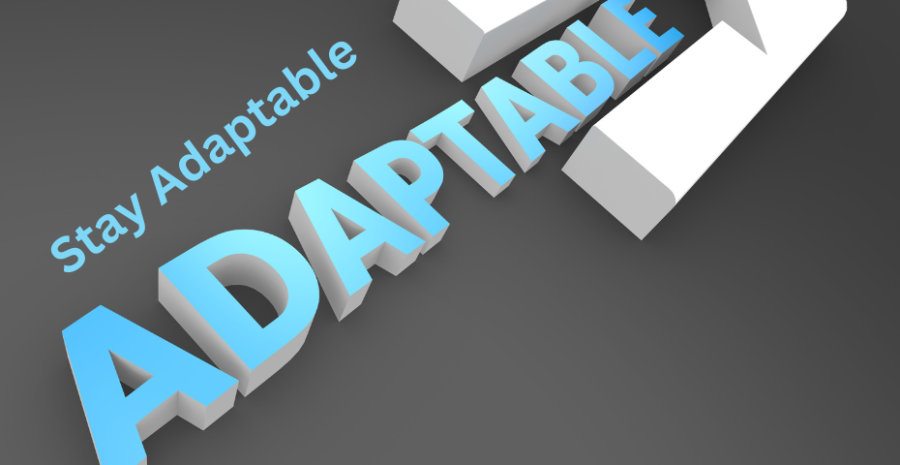
The Art of Thinking Clearly as an Entrepreneur: 12 Essential Principles
.png)
Being an entrepreneur is not just about having a great idea or a revolutionary product. It involves clear, strategic, and disciplined thinking.
In the high-stakes world of entrepreneurship, the ability to think clearly can be the difference between success and failure. Clear thinking empowers entrepreneurs to make informed decisions, solve complex problems, and navigate the unpredictable terrain of business with confidence. It involves a blend of strategic foresight, emotional intelligence, and disciplined execution, all of which are essential in turning a vision into reality.
As an entrepreneur, you must constantly evaluate your actions, learn from your experiences, and adapt to changing circumstances. This mental clarity not only helps in avoiding common pitfalls but also in identifying and seizing opportunities that others might overlook.
The following twelve principles are designed to refine your thinking process, helping you to stay focused, agile, and innovative in your entrepreneurial journey. By embracing these principles, you can enhance your ability to think clearly, leading to better decisions and ultimately, a more successful business.
Here are twelve principles that can help you master the art of thinking clearly and enhance your entrepreneurial journey.

Adopt a growth mindset to view challenges as opportunities to learn and improve. This mindset fosters resilience and persistence, essential traits for overcoming the inevitable obstacles in entrepreneurship. Recognize that skills and intelligence can be developed with effort and time, which will keep you motivated and open to new experiences.
Embracing a growth mindset is fundamental for entrepreneurial success. This mindset, popularized by psychologist Carol Dweck, involves the belief that abilities and intelligence can be developed through dedication and hard work. Entrepreneurs with a growth mindset view challenges as opportunities to learn rather than as setbacks.
They are more likely to persist in the face of difficulties, constantly seeking ways to improve and innovate. This perspective encourages a love for learning and a resilience that is crucial for navigating the inevitable ups and downs of business.
Fostering a growth mindset within your team can lead to a more motivated and adaptive workforce. By embracing this mindset, you position yourself and your business for continuous development and long-term success.

Critical thinking involves analyzing facts objectively and making reasoned judgments. For entrepreneurs, this means questioning assumptions, evaluating evidence, and considering alternative solutions before making decisions. By doing so, you avoid impulsive choices that can jeopardize your business.
Prioritizing critical thinking is essential for making sound decisions and avoiding costly mistakes in entrepreneurship. Critical thinking involves the ability to objectively analyze information, question assumptions, and evaluate evidence before reaching a conclusion.
For entrepreneurs, this means not taking things at face value but digging deeper to understand the underlying factors influencing their business environment. It helps in distinguishing between useful data and noise, enabling more strategic and effective decision-making. By fostering critical thinking, you can better navigate complex challenges, identify hidden opportunities, and avoid common cognitive biases that can impair judgment.
This disciplined approach to problem-solving also promotes innovation, as it encourages considering multiple perspectives and potential solutions. Ultimately, prioritizing critical thinking enhances your ability to make informed, rational decisions that drive your business forward.

Strategic planning is about setting long-term goals and determining the best ways to achieve them. It requires a clear vision of where you want your business to go and a detailed roadmap to get there. Regularly review and adjust your strategies to stay aligned with your business objectives.
Practicing strategic planning is crucial for setting a clear direction and ensuring long-term success in entrepreneurship. Strategic planning involves defining your business's vision, setting achievable goals, and outlining the steps needed to reach those objectives.
This process helps you prioritize initiatives, allocate resources efficiently, and stay focused on what truly matters. Regularly revisiting and adjusting your strategic plan ensures that you remain adaptable to changing market conditions and can pivot when necessary. It also provides a framework for measuring progress and making data-driven decisions.
By engaging in strategic planning, you create a roadmap that guides your actions and aligns your team towards common goals. This proactive approach not only mitigates risks but also maximizes opportunities, setting the foundation for sustainable growth and success.

Continuous learning is crucial in the fast-paced world of entrepreneurship. Stay curious and keep yourself informed about industry trends, new technologies, and market changes. This knowledge helps you anticipate shifts and adapt your strategies accordingly.
Staying curious and informed is vital for entrepreneurial success in today's fast-evolving business landscape. Curiosity drives you to continually seek out new knowledge, explore emerging trends, and understand innovative technologies. By keeping yourself informed, you gain insights that can help you anticipate market shifts, identify new opportunities, and stay ahead of the competition.
This proactive approach allows you to make well-informed decisions that can significantly impact your business's growth and adaptability. Moreover, a curious mindset fosters a culture of continuous improvement and learning within your team, encouraging creativity and innovation.
Engaging with industry news, attending conferences, and networking with peers are excellent ways to feed your curiosity. Ultimately, staying curious and informed equips you with the knowledge and foresight needed to navigate the complexities of entrepreneurship successfully.

Effective entrepreneurs are excellent problem solvers. When faced with challenges, approach them methodically: identify the root cause, brainstorm possible solutions, evaluate them, and implement the most feasible one. This structured approach minimizes risks and maximizes opportunities for success.
Focusing on problem-solving is a cornerstone of effective entrepreneurship. Entrepreneurs constantly face challenges that require swift and effective resolution, from operational issues to market competition. A problem-solving mindset involves identifying the root cause of an issue, brainstorming potential solutions, evaluating these options, and implementing the most effective one.
This systematic approach not only addresses immediate concerns but also prevents future problems by improving underlying processes. Cultivating strong problem-solving skills enhances your ability to adapt to changing circumstances and pivot when necessary, ensuring your business remains resilient.
Demonstrating effective problem-solving can inspire confidence in your team and stakeholders, fostering a culture of innovation and continuous improvement. By prioritizing problem-solving, you position your business to navigate obstacles efficiently and seize opportunities for growth and advancement.
.png)
Emotional intelligence (EI) involves understanding and managing your emotions and those of others. High EI helps you build better relationships with employees, customers, and partners. It also aids in making more balanced and thoughtful decisions, especially under pressure.
Cultivating emotional intelligence (EI) is crucial for successful entrepreneurship. EI involves understanding and managing your own emotions, as well as recognizing and influencing the emotions of others. High emotional intelligence helps you build strong relationships with employees, customers, and partners, fostering a positive work environment and enhancing team collaboration.
It enables you to handle stress, conflict, and setbacks with composure, maintaining a clear focus on your business goals. Additionally, EI aids in effective communication, allowing you to convey your vision and inspire your team.
By being empathetic and attuned to the needs and motivations of those around you, you can drive higher levels of engagement and productivity. Ultimately, developing emotional intelligence not only supports your personal growth but also contributes to the overall success and resilience of your business.

Knowing when and how to delegate is a critical skill. Delegation allows you to focus on high-impact activities while empowering your team to take ownership of their tasks. Ensure you delegate to capable individuals and provide them with the resources and support they need to succeed.
Delegating wisely is essential for scaling your business and maximizing efficiency as an entrepreneur. Effective delegation involves entrusting tasks to capable team members, allowing you to focus on high-priority activities that require your unique expertise. It empowers your employees by giving them ownership and responsibility, which can boost their morale and professional development.
To delegate successfully, it's crucial to clearly communicate expectations, provide the necessary resources, and offer ongoing support. Regular check-ins can help ensure that delegated tasks are on track and align with your business goals.
By leveraging your team's strengths, you can achieve more while preventing burnout and maintaining a balanced workload. Ultimately, wise delegation fosters a collaborative work environment, enhances productivity, and positions your business for sustainable growth.

Financial literacy is a must for entrepreneurs. Understand key financial statements, budgeting, cash flow management, and funding options. This knowledge enables you to make informed financial decisions and ensures the financial health of your business.
Developing financial acumen is critical for making informed decisions and ensuring the financial health of your business. Financial acumen involves understanding key financial statements, such as balance sheets, income statements, and cash flow statements, which provide insights into your business’s performance and stability.
It also encompasses budgeting, forecasting, and managing cash flow effectively to avoid liquidity issues. A strong grasp of financial principles helps you assess the viability of new projects, control costs, and allocate resources efficiently. Moreover, financial literacy is crucial when seeking funding or investment, as it allows you to present a compelling case to investors and lenders.
By honing your financial skills, you can better navigate economic challenges, capitalize on opportunities, and drive your business toward long-term success. This knowledge not only supports strategic planning but also builds confidence among stakeholders in your financial management capabilities.

Encourage creativity and innovation within your organization. Create an environment where new ideas are welcomed and experimentation is encouraged. This culture can lead to breakthrough products and services that differentiate your business in the marketplace.
Fostering a culture of innovation is essential for staying competitive and driving growth as an entrepreneur. It involves creating an environment where creativity, experimentation, and continuous improvement are encouraged and rewarded. By nurturing a culture of innovation, you inspire your team to think outside the box, challenge the status quo, and explore new ideas.
Encouraging open communication and collaboration fosters the exchange of diverse perspectives and sparks creativity. Providing resources and support for research and development initiatives empowers your team to pursue innovative solutions to business challenges.
Celebrating and recognizing innovative efforts reinforces the value of creativity within your organization and motivates employees to innovate further. Embracing a culture of innovation not only leads to breakthrough products and services but also cultivates a dynamic and adaptive workforce that thrives in an ever-changing market landscape.

Networking opens doors to new opportunities, partnerships, and resources. Build and maintain relationships with other entrepreneurs, mentors, investors, and industry experts. These connections can provide valuable insights, support, and collaboration opportunities.
Building a strong network is indispensable for entrepreneurial success. Networking provides access to valuable resources, insights, and opportunities that can accelerate your business growth. By connecting with other entrepreneurs, mentors, investors, and industry experts, you gain access to a wealth of knowledge and experience.
Cultivating these relationships can lead to strategic partnerships, collaborations, and potential clients or customers. Actively participating in industry events, conferences, and networking groups expands your reach and visibility within your field. Moreover, a strong network offers support and guidance during challenging times, providing a sounding board for ideas and solutions.
Nurturing your network requires genuine engagement, reciprocity, and a willingness to offer assistance to others. Ultimately, investing in building a strong network can significantly enhance your entrepreneurial journey and open doors to new opportunities for success.

Mindfulness involves being present and fully engaged in the moment. For entrepreneurs, mindfulness can improve focus, reduce stress, and enhance decision-making. Incorporate mindfulness practices such as meditation, deep breathing, or reflective journaling into your daily routine.
Practicing mindfulness is a powerful tool for enhancing entrepreneurial effectiveness and well-being. Mindfulness involves being fully present and engaged in the current moment, which can significantly improve focus, decision-making, and stress management.
For entrepreneurs, mindfulness helps in maintaining clarity and calmness amidst the daily hustle and challenges of running a business. Incorporating mindfulness techniques such as meditation, deep breathing, or mindful walking into your routine can reduce stress and increase emotional resilience. This heightened state of awareness enables you to respond more thoughtfully to situations rather than reacting impulsively.
Mindfulness also fosters a greater sense of empathy and connection with your team, enhancing communication and collaboration. By prioritizing mindfulness, you cultivate a balanced approach to your work, promoting a healthier work-life balance and sustaining long-term productivity and creativity. Ultimately, practicing mindfulness can lead to better business outcomes and a more fulfilling entrepreneurial journey.

Flexibility and adaptability are crucial in the ever-changing business landscape. Be open to pivoting your business model, strategies, or products when necessary. Embrace change as a constant and view it as an opportunity to innovate and grow.
Staying adaptable is crucial for entrepreneurial success in a constantly evolving business landscape. Adaptability involves being open to change, willing to pivot strategies, and capable of swiftly responding to new challenges and opportunities.
Entrepreneurs who cultivate adaptability can more easily navigate market fluctuations, technological advancements, and shifting consumer preferences. This flexibility allows for continuous improvement and innovation, as you are more likely to experiment with new ideas and approaches.
Embracing adaptability also means fostering a culture that encourages your team to be resilient and open-minded, enabling them to thrive amid uncertainty. By staying adaptable, you can quickly realign your business strategies to meet current demands, ensuring sustained relevance and competitiveness.
Ultimately, adaptability empowers you to seize unforeseen opportunities and mitigate risks, driving long-term success and growth.
In conclusion, mastering the art of thinking clearly is essential for entrepreneurial success and sustainable growth. By embracing a growth mindset, prioritizing critical thinking, and practicing strategic planning, entrepreneurs can navigate the complexities of the business world with greater confidence and foresight.
Staying curious and informed, focusing on problem-solving, and cultivating emotional intelligence further enhance decision-making capabilities and resilience. Delegating wisely and developing financial acumen ensure efficient resource management and financial stability. Fostering a culture of innovation, building a strong network, practicing mindfulness, and staying adaptable all contribute to a dynamic and thriving business environment.
These twelve principles collectively empower entrepreneurs to overcome challenges, capitalize on opportunities, and drive their ventures toward long-term success. By integrating these practices into your entrepreneurial journey, you can enhance your clarity of thought and build a solid foundation for your business.Mastering these twelve principles, you can sharpen your thinking and enhance your effectiveness as an entrepreneur.
Clear thinking not only helps you navigate the complexities of running a business but also positions you to seize opportunities and drive sustained success. Remember, the art of thinking clearly is a continual process of learning, adapting, and growing.
(11).jpg)
About: Andries vanTonder (65)
45 years selfemployed
He is a Serial Entrepreneur, an Enthusiastic supporter of Blockchain Technology and a Cryptocurrency Investor
Find me: Markethive Profile Page | My Twitter Account | My Instagram Acount | and my Facebook Profile.
